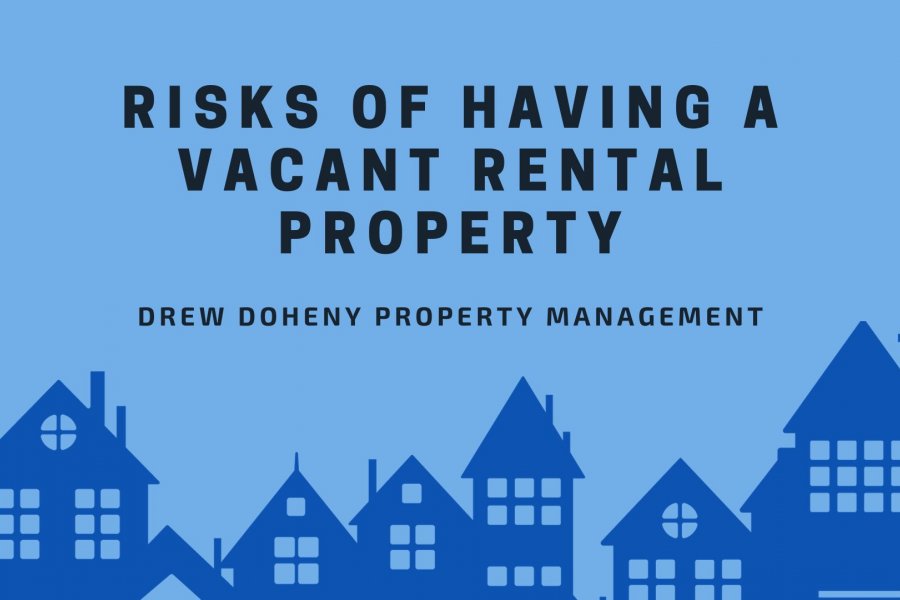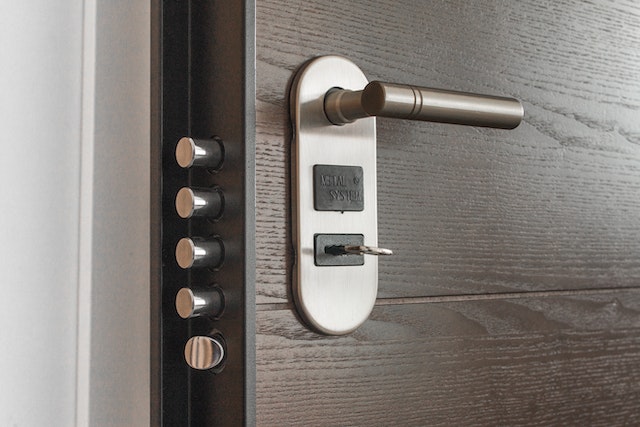
One aspect of property ownership that often goes overlooked is the risk of having a vacant rental property. A vacant property can pose significant financial, legal, and safety risks for landlords. In this comprehensive guide, we will explore the various risks associated with having a vacant rental property.
Financial Risks of Having
Loss of Rental Income
One of the most immediate and pressing financial risks associated with a vacant rental property is the loss of rental income. When your property sits unoccupied, your primary source of revenue is disrupted.
This loss of rental income can significantly affect your cash flow, making it difficult to cover various expenses related to property ownership, including mortgage payments, maintenance, and taxes.
Continued Operating Expenses
A vacant rental property still carries the financial burden of mortgage payments. Failure to make these payments can lead to serious consequences, including foreclosure. This obligation can quickly erode your finances, especially if the vacancy persists for an extended period.
Property Taxes and Insurance
Property taxes and insurance premiums are recurrent expenses that must be paid regardless of occupancy. Failing to meet these financial obligations can result in penalties, loss of insurance coverage, or even legal consequences.

Risk of Property Depreciation
A vacant rental property is susceptible to physical deterioration and depreciation over time. Without the regular upkeep that comes with tenant occupancy, the property's condition can decline, reducing its overall market value.
Negative Impact on Value
A poorly-maintained vacant property may not command the same rental income or resale value as a well-maintained one, affecting your profit potential. It can also make it more difficult to write a good property listing.
Property Maintenance Risks
Increased Wear and Tear
When a rental property remains vacant, there is a heightened risk of maintenance neglect. Without tenants to report issues and regular use of the property, problems can go unnoticed and unaddressed, leading to a deterioration in the property's condition.
Neglected Repairs
Minor maintenance issues can escalate into major problems if left unattended, potentially resulting in costly repairs when the property is eventually occupied.
Decline in Aesthetic Appeal
Neglected maintenance can negatively impact the property's curb appeal and desirability for potential tenants or buyers.
Safety Risks
Vandalism
Vacant properties are more susceptible to vandalism and theft. Unoccupied homes often become targets for vandals, trespassers, and thieves, resulting in property damage and theft of valuable fixtures or appliances. Vandalism can include broken windows, graffiti, and other forms of damage, which can be expensive to repair.
Theft
Valuable items, like copper plumbing or appliances, can be stolen, adding to the financial burden of property ownership. Before you find someone to rent out the unit, these items will have to be replaced, which is an extra cost to you.

Liability Risks
Vacant properties can present liability concerns, particularly if unauthorized individuals access the premises and are injured. Property owners may be held legally responsible for accidents on their vacant property.
Trespassing and Injuries
Trespassers or even squatters can get injured on vacant properties, potentially leading to liability claims.
Legal Costs
Defending against liability claims can result in significant legal expenses and potential financial settlements.
Tenant Attraction and Retention Risks
Negative Impact on Property Reputation
Vacant rental properties can develop a negative reputation within the local rental market and the community. If you are a first-time landlord, you want to do everything in your power to keep your reputation clean.
This tarnished image that comes with a vacant rental can deter potential tenants and make it challenging to attract quality renters in the future.
Increased Tenant Turnover
Extended vacancies can lead to increased tenant turnover when current tenants decide not to renew their leases due to concerns about property management or dissatisfaction with the vacant surroundings.
Difficulty Finding High-Quality Tenants
Vacant properties make it difficult to attract high-quality tenants, as responsible renters often prefer well-maintained and occupied homes. The longer a property remains vacant, the more challenging it becomes to find reliable, long-term tenants.
Legal and Liability Risks
Maintain a Safe Property
Property owners have a legal duty to maintain a safe environment for anyone who enters the property, whether it's tenants, visitors, or trespassers. A vacant property still carries this obligation, and neglecting safety measures can result in legal liability for accidents and injuries on the premises.

Local Housing Codes
Local housing codes and regulations impose specific standards for property safety and habitability. Property owners must ensure their vacant rental properties comply with these codes, as violations can lead to legal actions and penalties.
Eviction and Abandonment
If a tenant vacates a property without fulfilling their lease obligations or through the eviction process, it can lead to various legal complexities and risks.
Mitigating Risks
Here are key steps to mitigate the risks of vacant rental properties:
- Establish clear leasing agreements with expectations for property care and maintenance.
- Regularly communicate with tenants to address any concerns promptly.
- Consider incentives such as rent discounts or improvements to retain good tenants.
- Conduct routine property inspections to identify and address maintenance issues promptly.
- Schedule regular maintenance tasks even when the property is vacant to prevent deterioration.
- Price your rental competitively to attract tenants.
- Implement effective marketing and advertising strategies to reach potential renters.
- Maintain an emergency fund to cover unexpected expenses during vacancies.
- Budget for vacancies by setting aside a portion of rental income each month.
- Implement security measures such as alarm systems, motion-activated lights, and secure locks to deter vandalism and theft.
Final Word
Owning a rental property can be a rewarding investment. Still, it comes with its share of challenges and risks, and few are as concerning as the risks associated with having a vacant rental property.
The financial, maintenance, legal, and security risks of vacant properties can be substantial and have far-reaching consequences for property owners and landlords.
In the complex world of property management, having a reliable partner by your side can make all the difference in mitigating the risks associated with vacant rental properties. The Drew Doheny Property Management team specializes in providing expert guidance and services to property owners like you.
Reach out to us now to discuss how we can tailor our services to meet your specific needs and ensure the success of your rental property investment.
